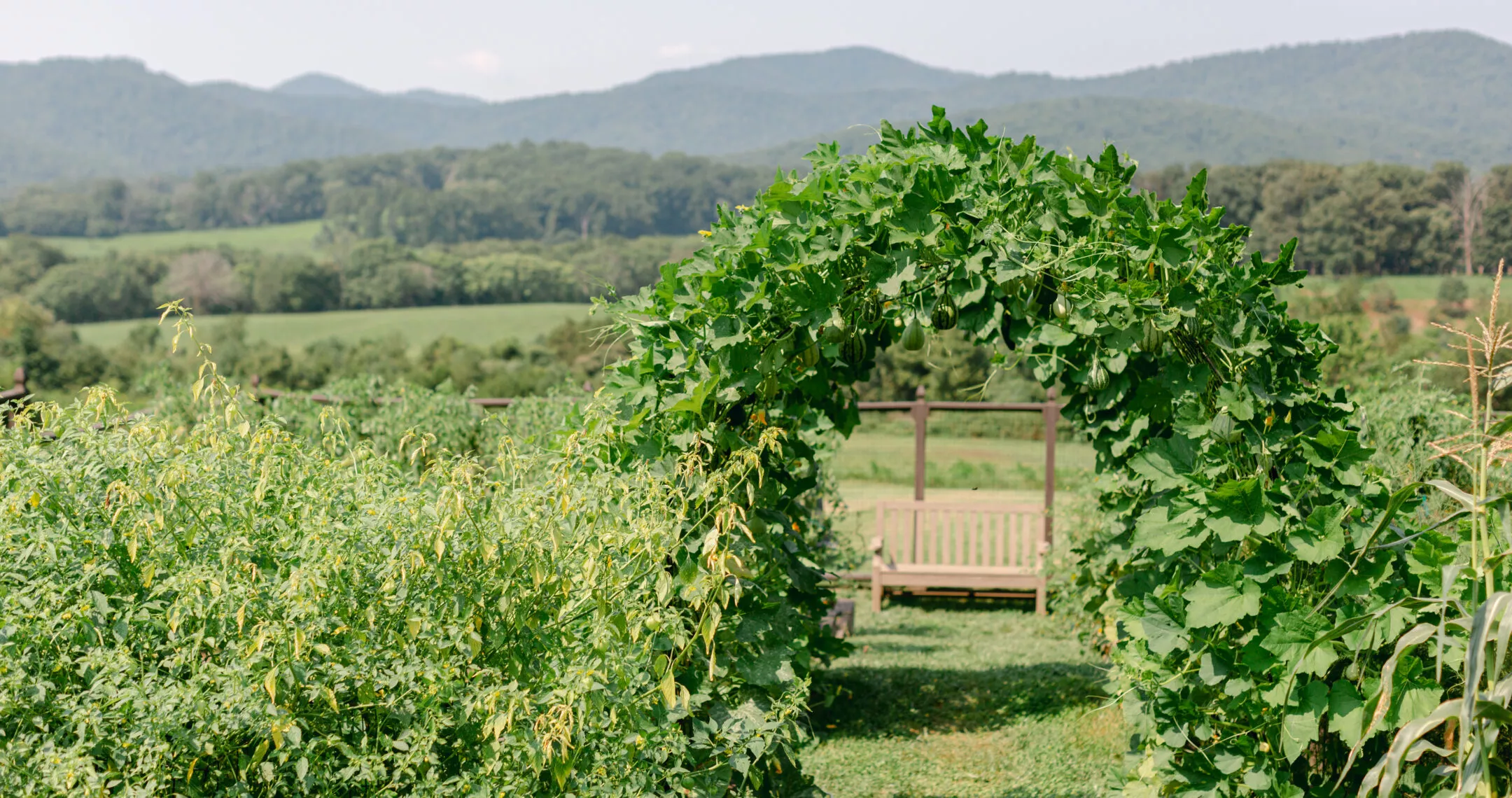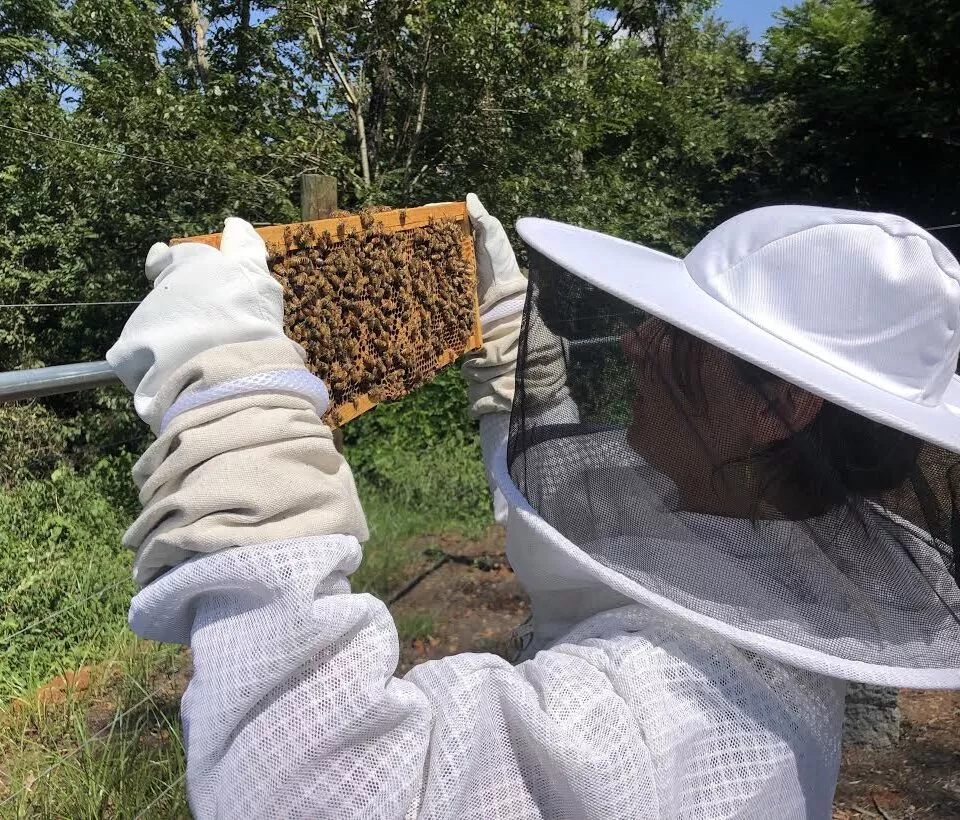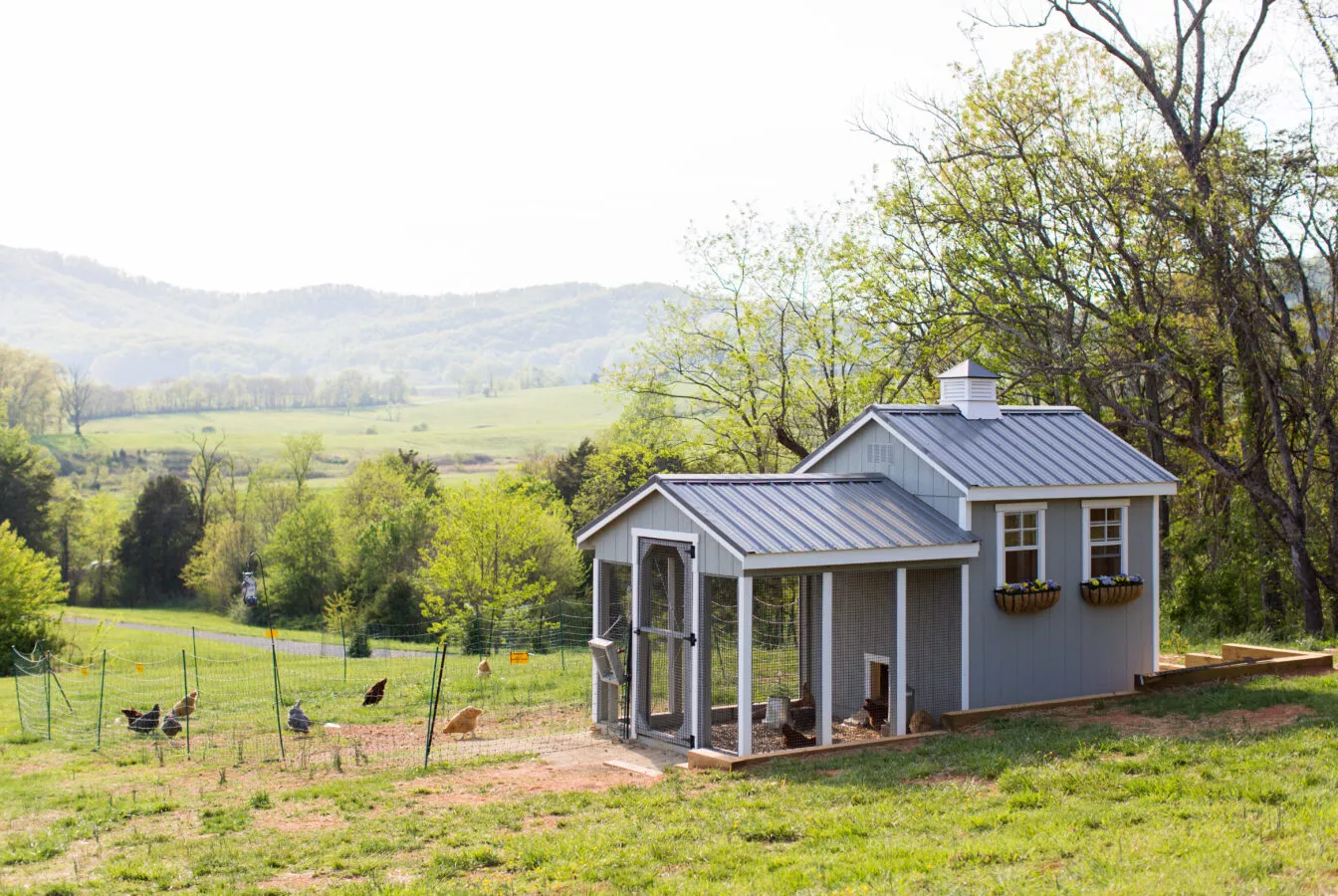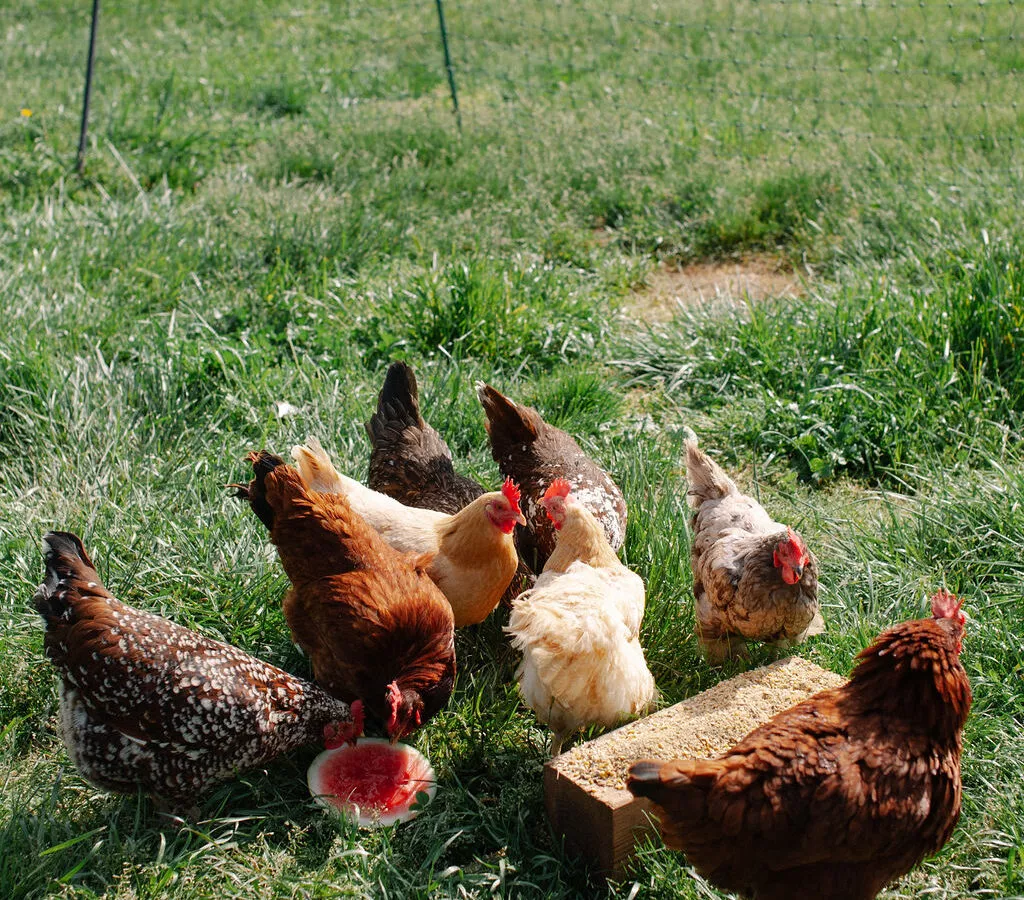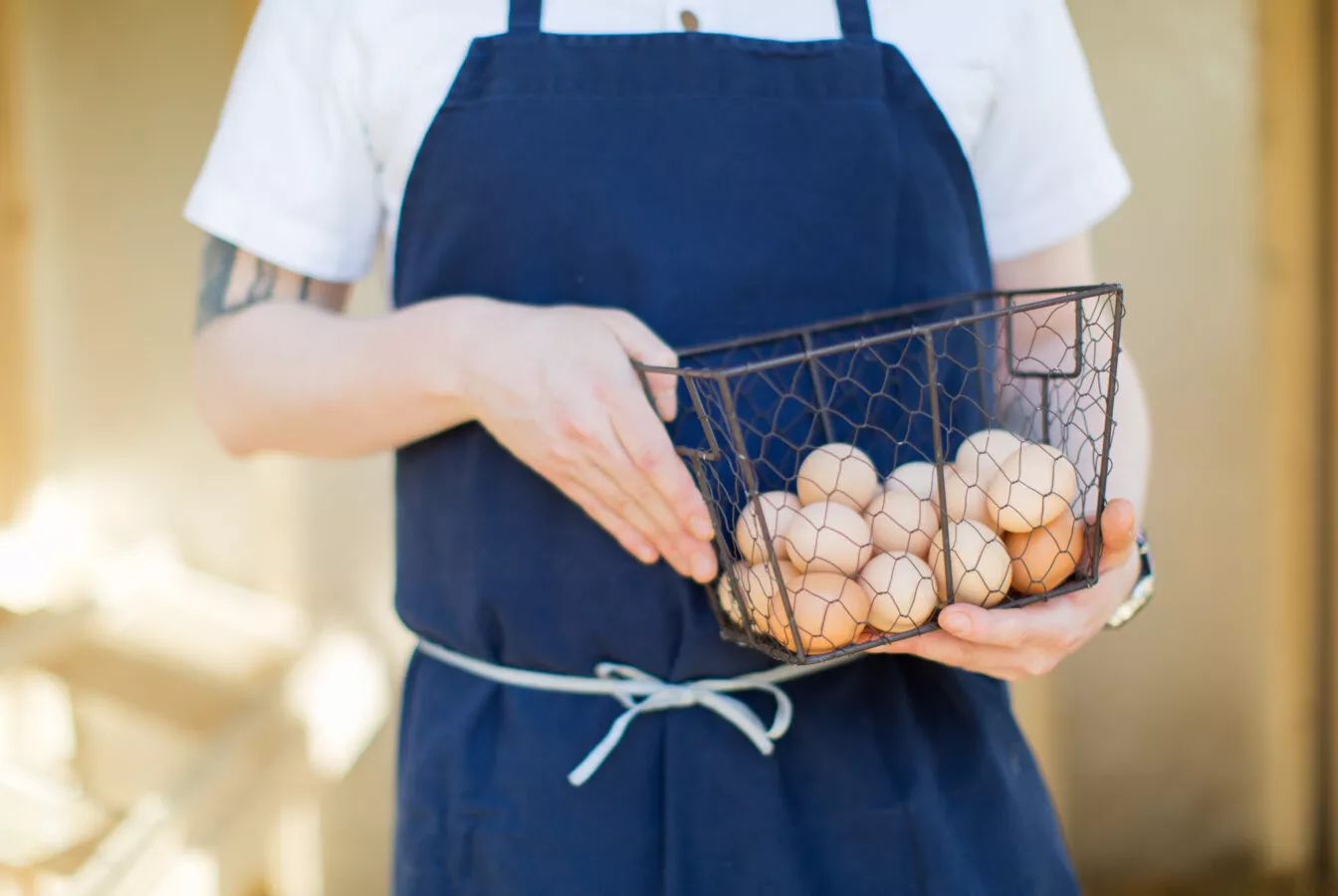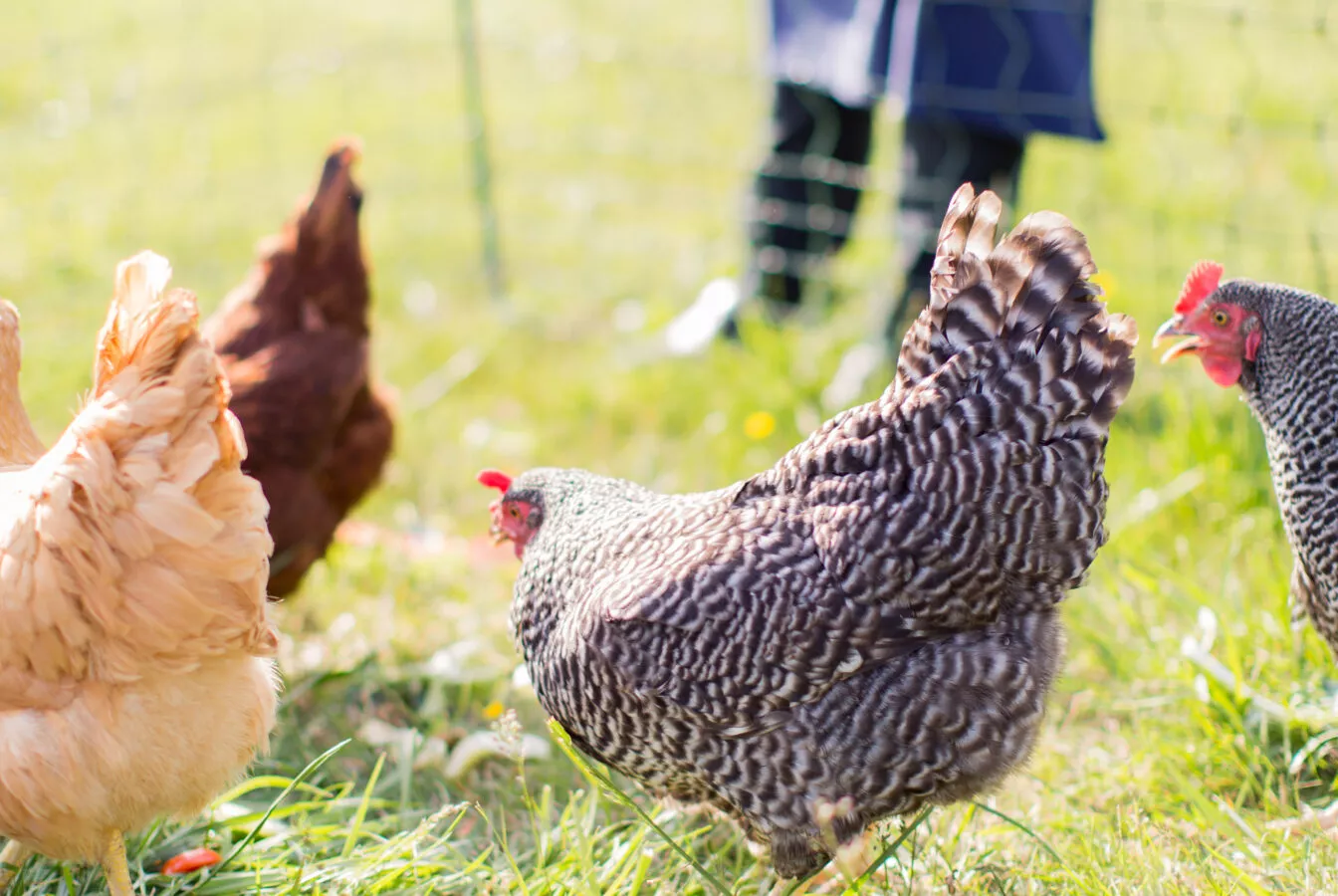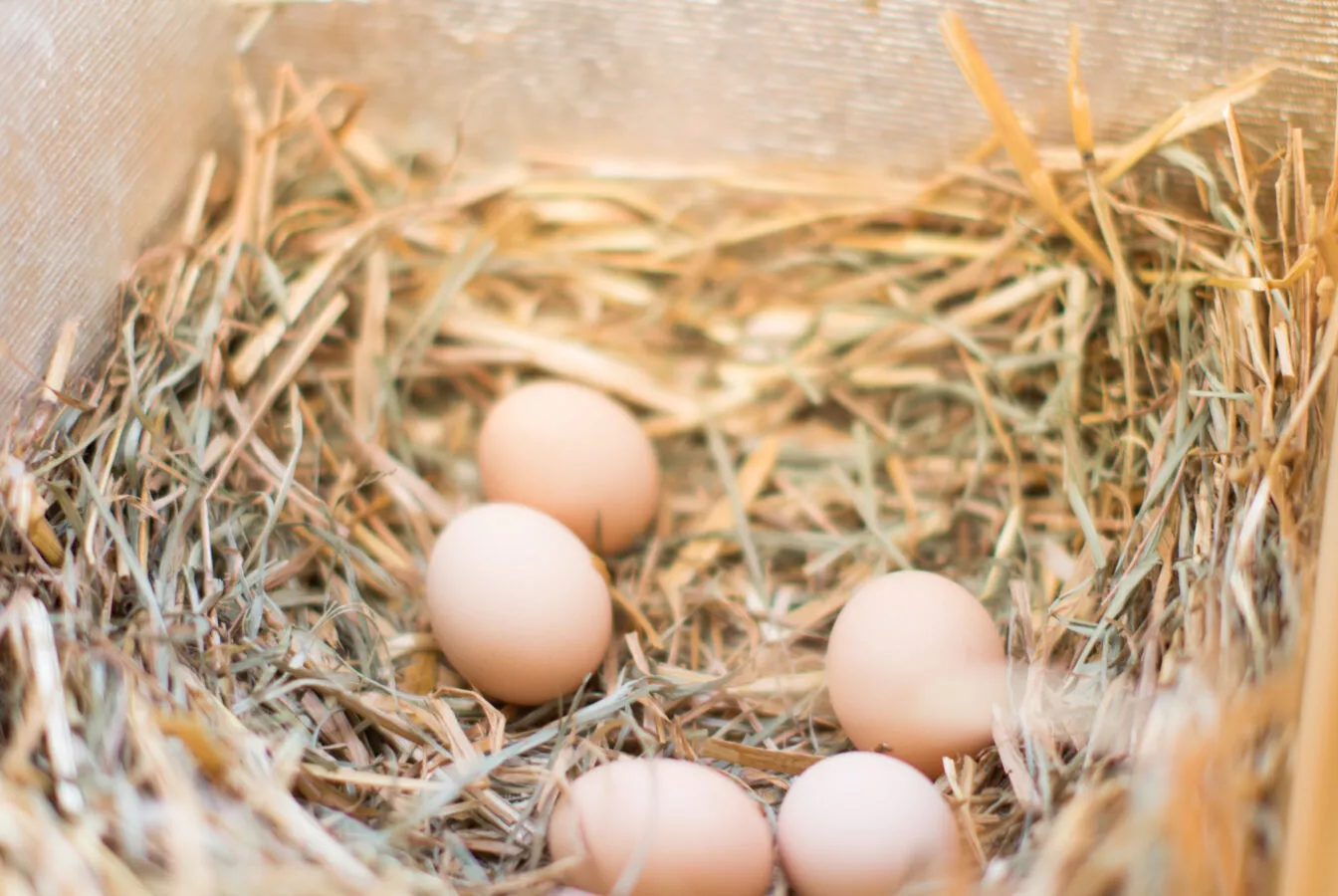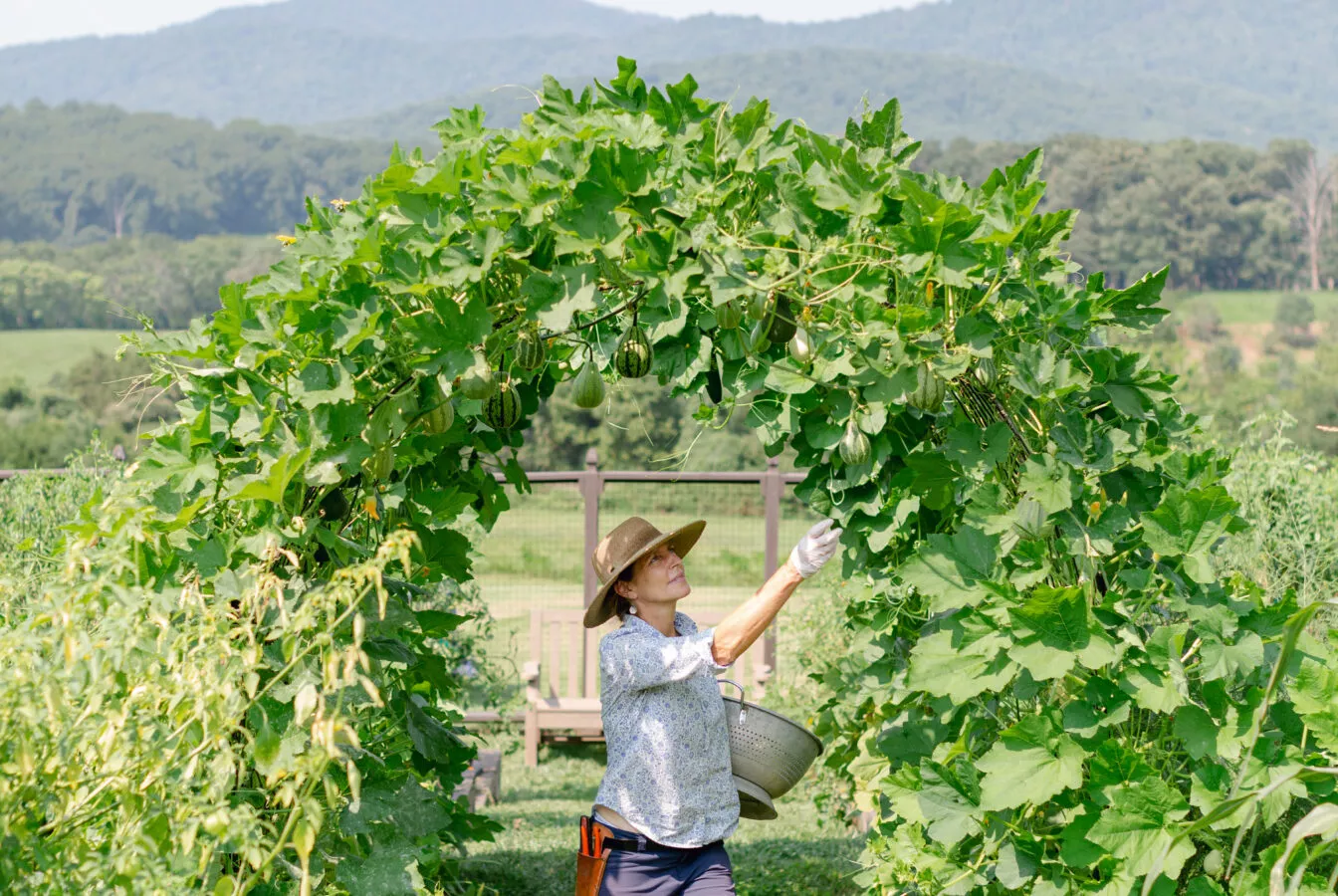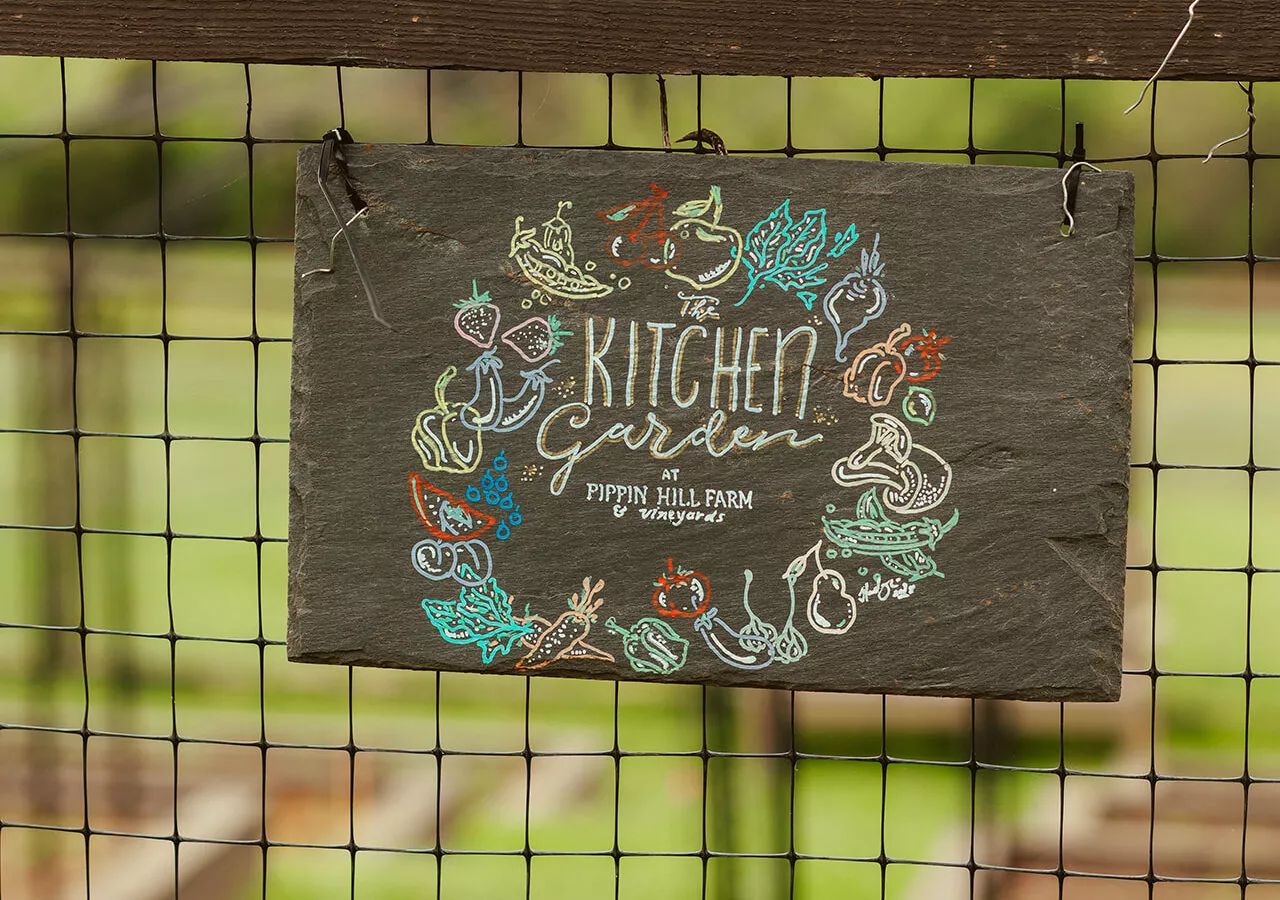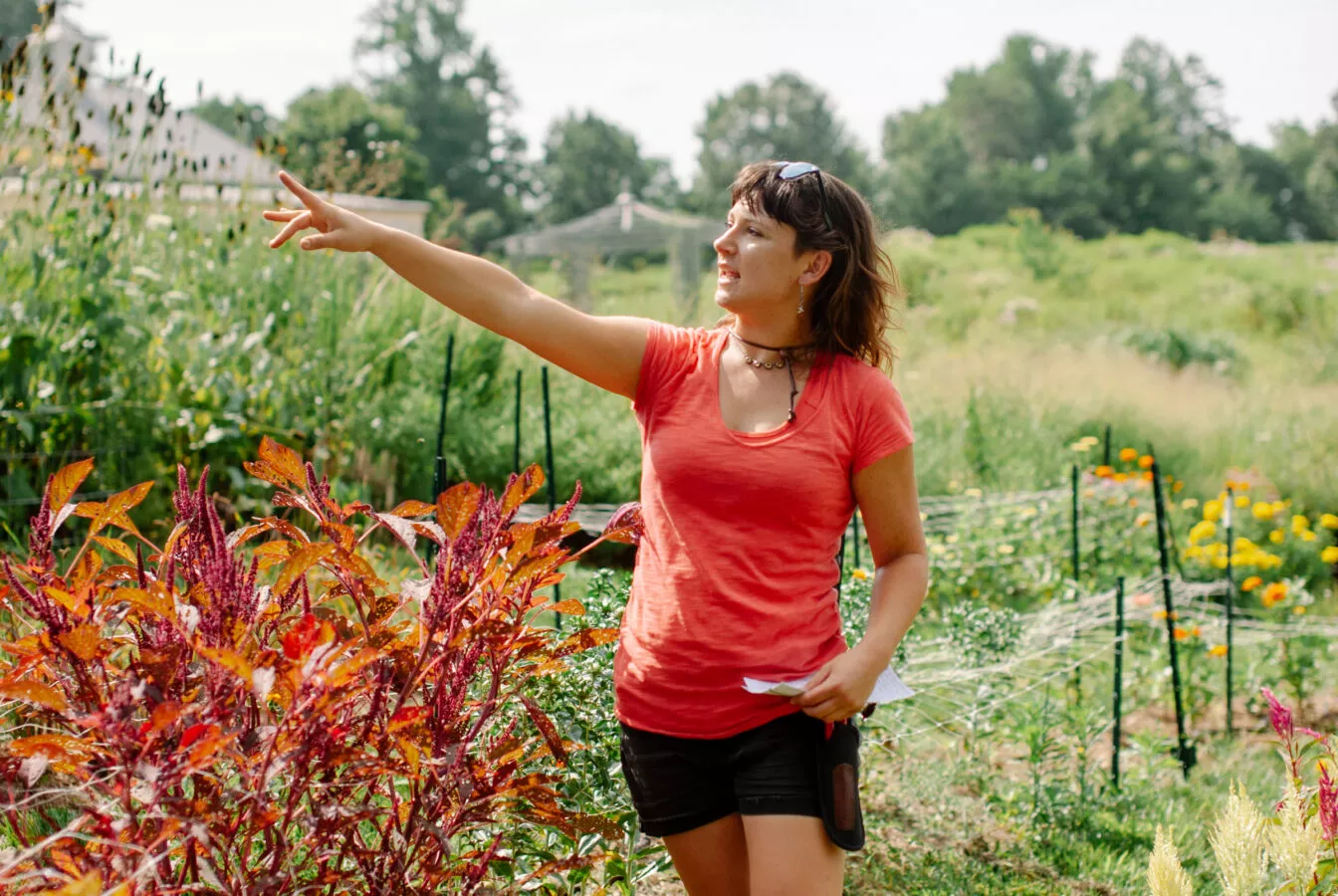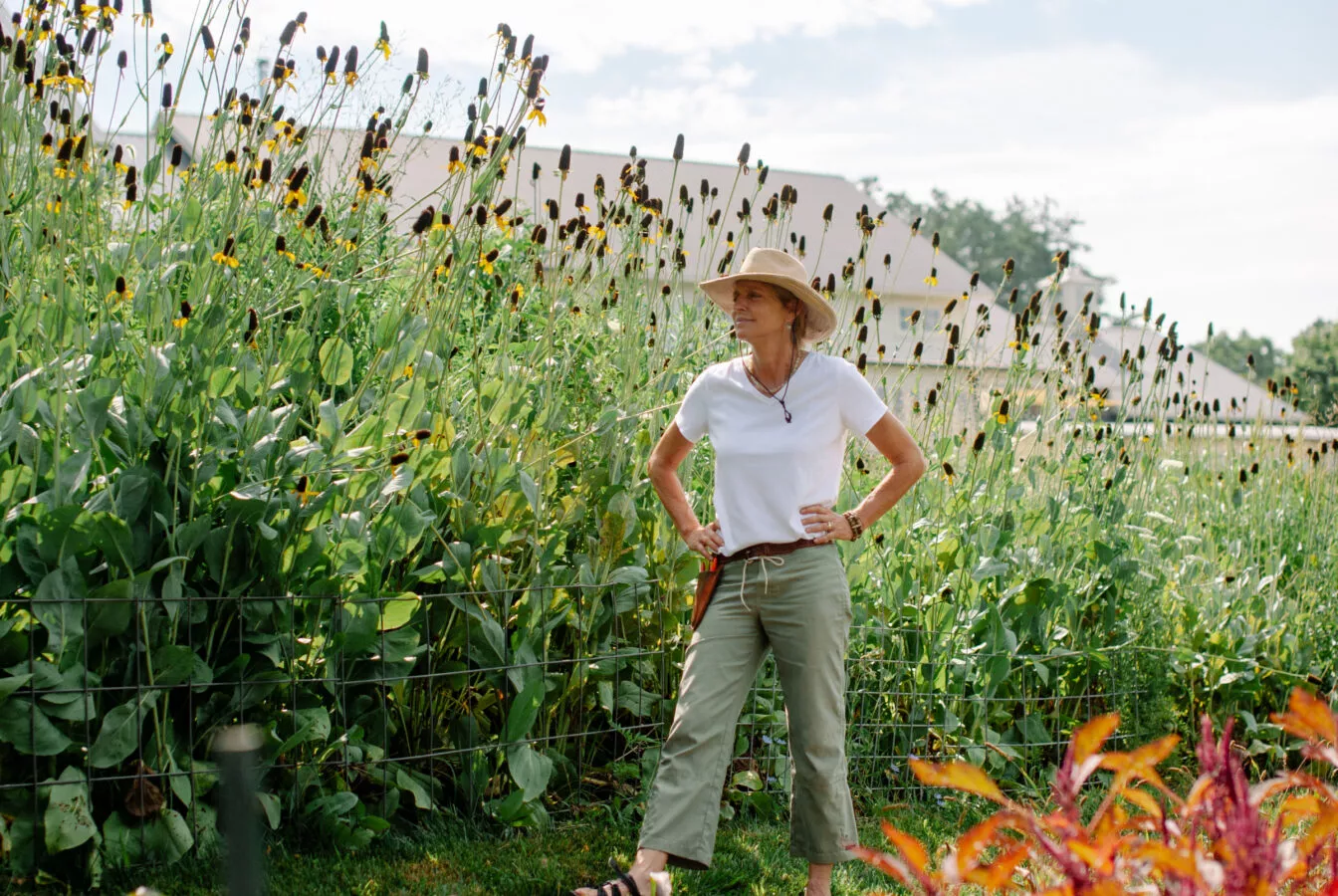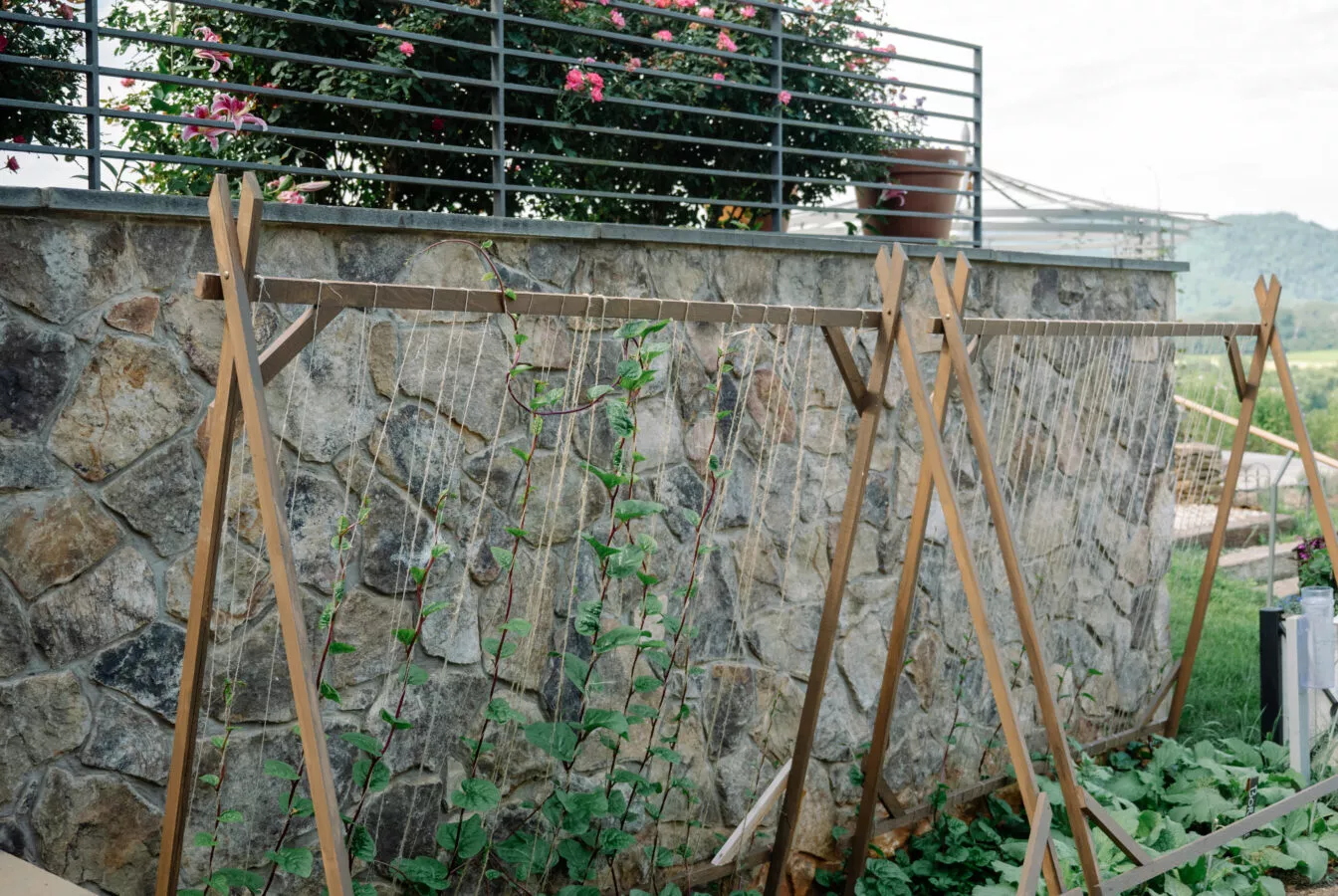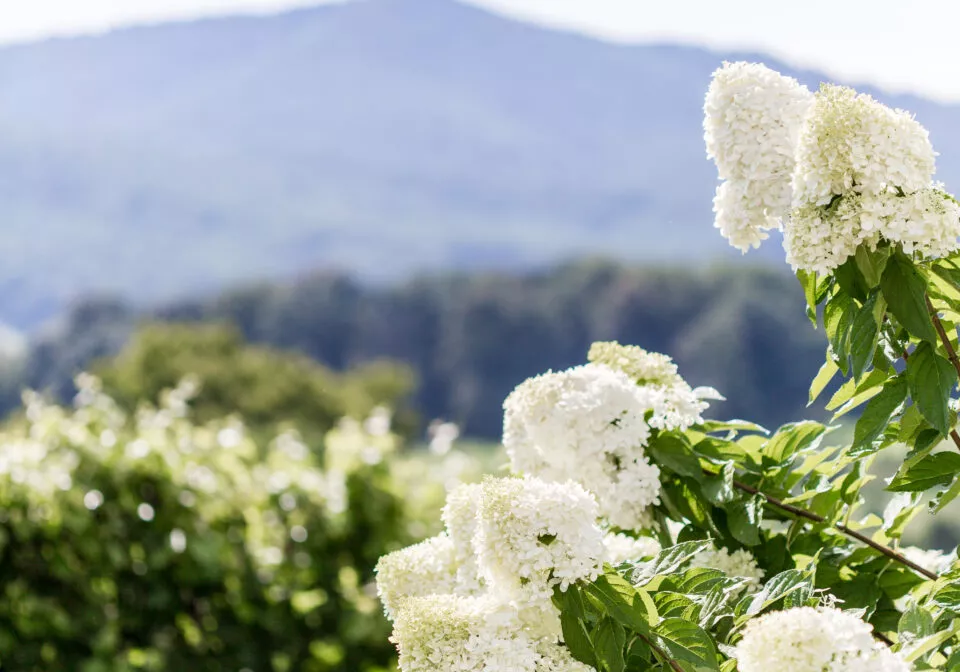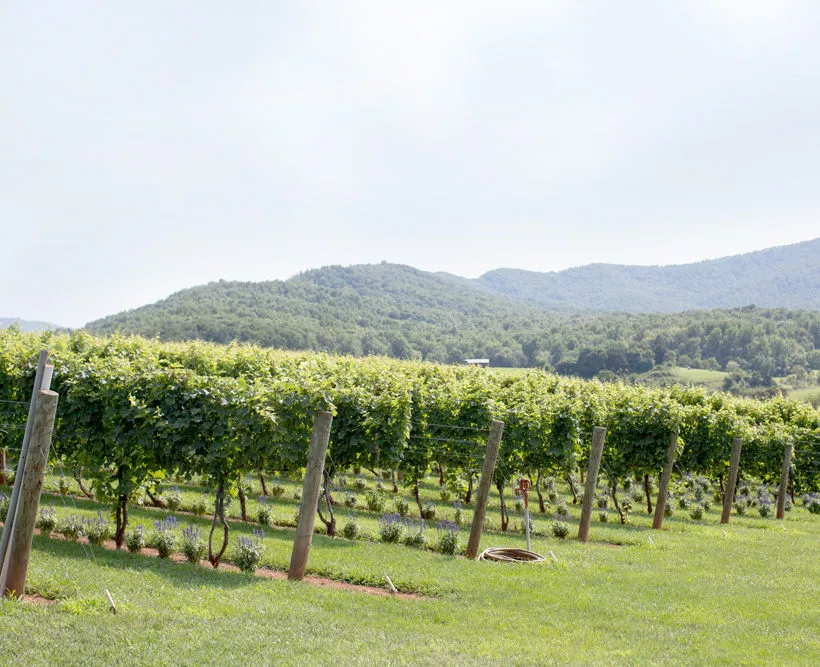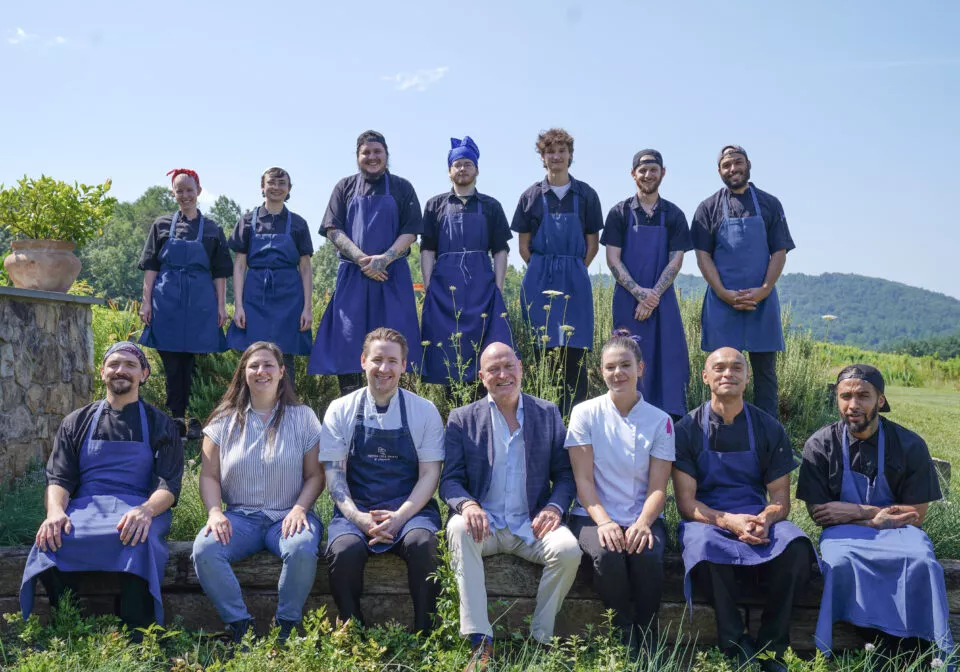Pippin Hill Farm & Vineyards sits on 41 acres over looking the rolling foothills of the Blue Ridge Mountains. The grounds are composed of vineyards, kitchen gardens, flower gardens, 8 acres of natural areas made up of native flowers & grasses as well as dedicated livestock areas.
The Farm at Pippin Hill
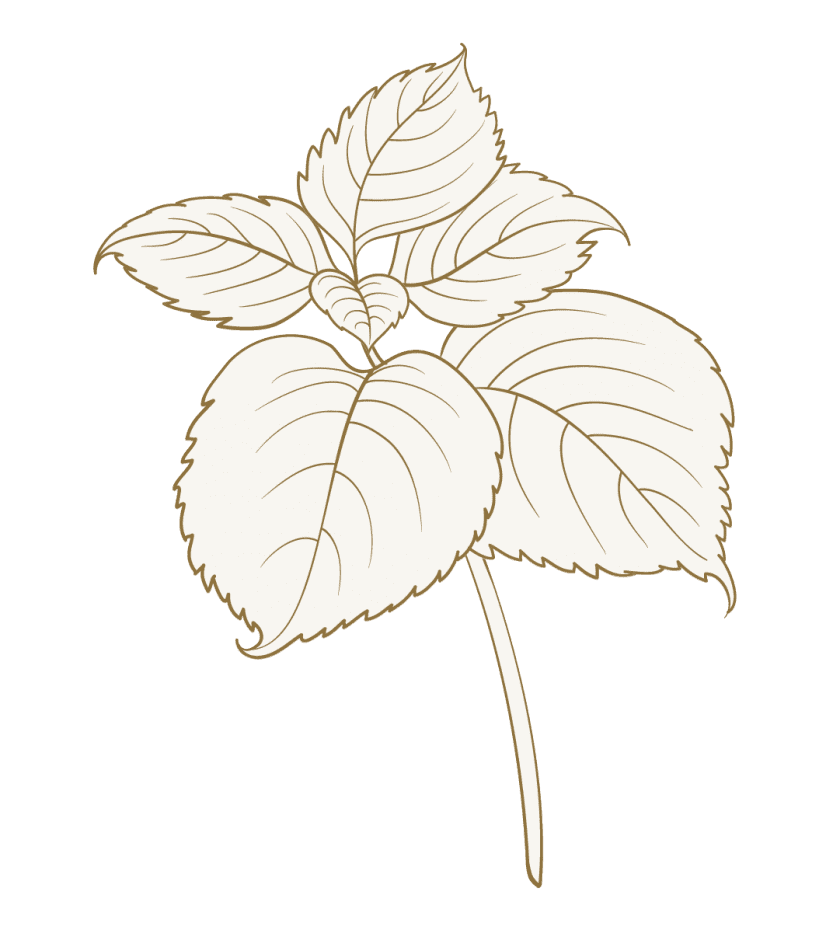
The Apiary
30% of the food we eat depends on pollination. And the decline of the bee population nationwide is a very real concern and something we take to heart at Pippin Hill. So, in 2019 we partnered with a local honey company and established an apiary housing with 5 honeybee hives. Having honeybees helps with pollination of our vegetables, fruits and flowers on the Farm and give us bigger yields of these crops. The bees can forage up to a 3-mile radius of their hives so they are also aiding with the pollination of the fruit orchards in the North Garden area. When we have a surplus of honey, we will harvest it and it will be used in our kitchen. But the honey is purely a byproduct of managing honeybees, our main goal is to aid in the plight of the honeybee and to be good stewards on the land.
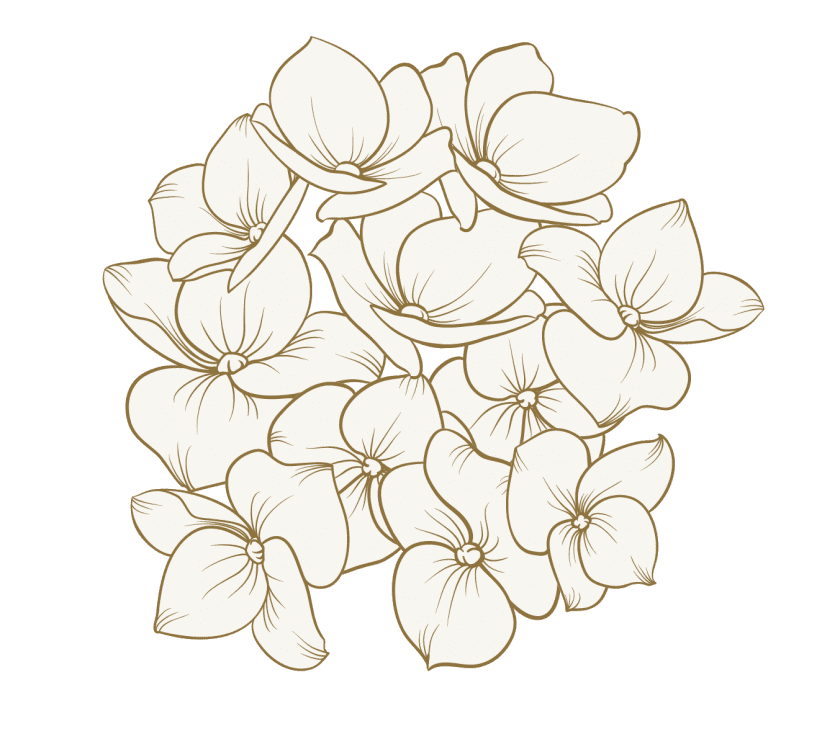
The Chickens
Egg laying hens were added to the Farm at Pippin Hill in 2018 to provide eggs for the kitchen. We generally have between 10– 15 hens that are all good egg layers, friendly and hardy breeds. Some of breeds include Rhode Island Reds, Buff Orpingtons, Blue Wyandottes, Speckled Sussex, and Ameraucanas. Our Chefs like to use the eggs for their delicious culinary creations.
The Gardens
The kitchen gardens are divided into three areas: the herb garden, the Reserve Room garden for greens and lettuces, and the lower vegetable garden for larger crops like tomatoes, squash, and peppers. Head Gardener Celina DeBrito and Executive Chef Victoria Cosner plan the three-season garden in January.
The flower gardens provide vibrant blooms for Tasting Room arrangements, events, and workshops, while also serving as vital pollinators. Edible flowers are grown for the kitchen to garnish and enhance the flavors of Pippin Hill dishes.
